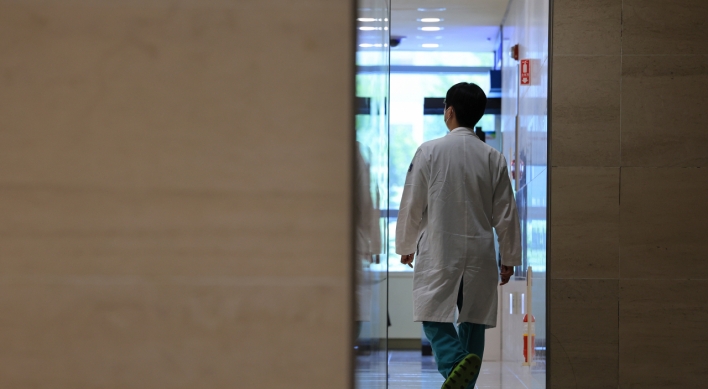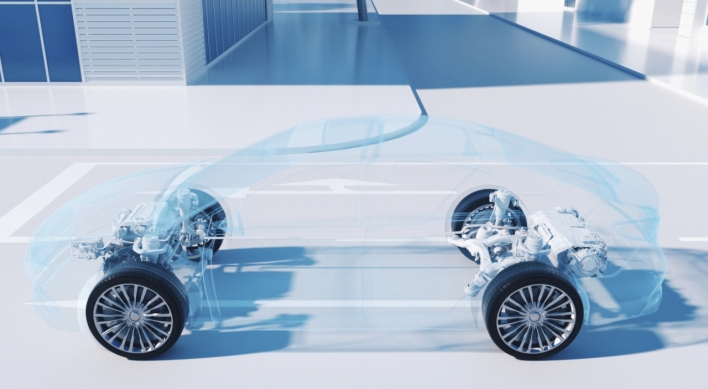Electronic books will replace textbooks while medical students will practice surgical operations in an augmented reality, according to an international report that predicted the future campus in the next five years or less.
The 2011 Horizon Report, published by the New Media Consortium, a non-profit group dedicated to exploring new technologies in learning, introduced six technologies likely to enter mainstream use over the next five years.
Electronic books and mobiles that appeared on the “mid-term horizon” last year will be adopted for mainstream use in education institutions within 12 months, the annual report said.
“Modern electronic readers support note-taking and research activities, and are beginning to augment these basic functions with new capabilities ― from immersive experiences to support for social interaction ― that are changing our perception of what it means to read,” the report said.
“Mobiles are capable computing devices in their own right ― and they are increasingly a user’s first choice for Internet access.”
The report cited the case of the Stanford University School of Medicine, which provides students with iPads as a way to lighten the load of text-book toting students.
Some Korean universities have participated in pilot programs such as an e-book lending service for libraries.
Augmented reality and game-based learning were also considered to gain widespread usage within two to three years.
“Augmented reality brings a significant potential to supplement information delivered via computers, mobile devices, video, and even printed books,” the report said.
Game-based learning has grown in recent years as research continues to demonstrate its effectiveness for learning for students of all ages, the report said.
Massachusetts Institute of Technology has recently developed a curated game called “Mass Extinction” to educate young students on climate change. The players solve puzzles, collect data, do Web searches, and engage in online debate, all in the process of unraveling a mystery that blends a science-fiction scenario with the issue of climate change.
In the longer term of four to five years from now, the report said, gesture-based computing will be in widespread usage on campuses.
Gesture-based computing moves the control of computers from a mouse and keyboard to the motions of the body via new input devices “like in some science fiction movies for years.”
The technology can be applied to various learning processes. Students can determine or change the DNA of a fruit fly by piercing it together by hand, page through a fragile text from the Middle Ages, or practice surgical operations using the same movements a surgeon would.
The last concept of “Learning analytics” is still new for many. The technology identifies at-risk students and collects information and course grade books, then helps improve course management systems.
By offering information in real time, learning analytics can support immediate alterations, suggesting a model of curriculum online more fluid and open to change, the report explained.
“Our research indicates that all six of these technologies, taken together, will have a significant impact on learning-focused organizations within the next five years,” the report said.
By Lee Ji-yoon (jylee@heraldcorp.com)
The 2011 Horizon Report, published by the New Media Consortium, a non-profit group dedicated to exploring new technologies in learning, introduced six technologies likely to enter mainstream use over the next five years.
Electronic books and mobiles that appeared on the “mid-term horizon” last year will be adopted for mainstream use in education institutions within 12 months, the annual report said.
“Modern electronic readers support note-taking and research activities, and are beginning to augment these basic functions with new capabilities ― from immersive experiences to support for social interaction ― that are changing our perception of what it means to read,” the report said.
“Mobiles are capable computing devices in their own right ― and they are increasingly a user’s first choice for Internet access.”
The report cited the case of the Stanford University School of Medicine, which provides students with iPads as a way to lighten the load of text-book toting students.
Some Korean universities have participated in pilot programs such as an e-book lending service for libraries.
Augmented reality and game-based learning were also considered to gain widespread usage within two to three years.
“Augmented reality brings a significant potential to supplement information delivered via computers, mobile devices, video, and even printed books,” the report said.
Game-based learning has grown in recent years as research continues to demonstrate its effectiveness for learning for students of all ages, the report said.
Massachusetts Institute of Technology has recently developed a curated game called “Mass Extinction” to educate young students on climate change. The players solve puzzles, collect data, do Web searches, and engage in online debate, all in the process of unraveling a mystery that blends a science-fiction scenario with the issue of climate change.
In the longer term of four to five years from now, the report said, gesture-based computing will be in widespread usage on campuses.
Gesture-based computing moves the control of computers from a mouse and keyboard to the motions of the body via new input devices “like in some science fiction movies for years.”
The technology can be applied to various learning processes. Students can determine or change the DNA of a fruit fly by piercing it together by hand, page through a fragile text from the Middle Ages, or practice surgical operations using the same movements a surgeon would.
The last concept of “Learning analytics” is still new for many. The technology identifies at-risk students and collects information and course grade books, then helps improve course management systems.
By offering information in real time, learning analytics can support immediate alterations, suggesting a model of curriculum online more fluid and open to change, the report explained.
“Our research indicates that all six of these technologies, taken together, will have a significant impact on learning-focused organizations within the next five years,” the report said.
By Lee Ji-yoon (jylee@heraldcorp.com)









![[Kim Seong-kon] Democracy and the future of South Korea](http://res.heraldm.com/phpwas/restmb_idxmake.php?idx=644&simg=/content/image/2024/04/16/20240416050802_0.jpg&u=)









![[Today’s K-pop] Zico drops snippet of collaboration with Jennie](http://res.heraldm.com/phpwas/restmb_idxmake.php?idx=642&simg=/content/image/2024/04/18/20240418050702_0.jpg&u=)